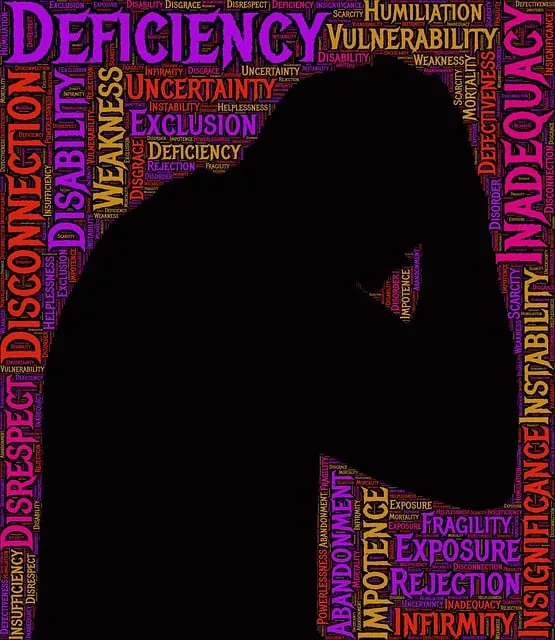Kaiser Permanente's commitment to mental well-being is highlighted through its accessible resources and risk assessment strategies at the Parker location. By utilizing evidence-based tools like the Parker model, professionals conduct thorough evaluations of patient safety factors, focusing on context, emotional regulation, and mood management. This proactive approach enhances resilience with techniques like stress management and journaling exercises during appointments. Comprehensive post-assessment strategies, including guidelines for high-risk cases, debriefings, and professional development, ensure patient and practitioner safety. The Kaiser Permanente mental health appointment phone number in Parker facilitates crisis interventions, emphasizing a holistic care model for improved outcomes.
In today’s demanding mental healthcare landscape, risk assessment is paramount for professionals like those at Kaiser Permanente. This article delves into the crucial practice of evaluating risks in mental health care, drawing insights from Kaiser Permanente’s comprehensive approach. We explore key factors to consider during assessment and the role of tools and techniques in enhancing safety. Additionally, we discuss post-assessment strategies to ensure the well-being of professionals, with a focus on real-world examples from Kaiser Permanente, accessible through their mental health appointment phone number in Parker.
- Understanding Risk Assessment in Mental Health Care
- The Role of Kaiser Permanente in Mental Health Risk Management
- Key Factors to Consider During Assessment
- Tools and Techniques for Effective Risk Evaluation
- Ensuring Safety: Post-Assessment Strategies for Professionals
Understanding Risk Assessment in Mental Health Care

Risk assessment is a vital component of mental health care, offering a structured approach to understanding and mitigating potential risks within therapeutic settings. For mental health professionals, this process involves meticulously evaluating various factors that could impact patient safety and well-being during and after Kaiser Permanente mental health appointments. By employing evidence-based tools and methodologies, practitioners can identify vulnerabilities and develop proactive strategies to enhance resilience.
Incorporating techniques like stress management and inner strength development, as advocated by experts at Parker, allows professionals to empower individuals through the emotional healing processes. This proactive risk assessment not only ensures patient safety but also fosters a therapeutic environment conducive to positive outcomes.
The Role of Kaiser Permanente in Mental Health Risk Management

Kaiser Permanente, a renowned healthcare organization, plays a pivotal role in mental health risk management, offering comprehensive support to its members and professionals alike. With an emphasis on holistic well-being, they provide resources for both patients seeking mental health appointments and practitioners aiming to maintain a healthy work-life balance. The organization’s dedicated phone line for mental health appointments, accessible through the Kaiser Permanente Parker location, serves as a vital link, ensuring easy access to care.
This approach extends beyond individual appointments to encompass burnout prevention strategies specifically tailored for healthcare providers. By recognizing the unique challenges faced by mental health professionals, Kaiser Permanente facilitates emotional healing processes and promotes sustainable practices. Their initiatives contribute to a supportive environment, enabling practitioners to thrive while effectively managing risks associated with their noble work.
Key Factors to Consider During Assessment

When conducting a risk assessment for mental health professionals, several key factors must be considered to ensure comprehensive coverage and accurate prediction of potential risks. Firstly, the context of the client’s presentation is vital; this includes understanding their history, current circumstances, and any recent life events that might impact their mental state. The Kaiser Permanente mental health appointment phone number in Parker can serve as a valuable resource for professionals seeking guidance on navigating complex cases or requiring crisis intervention.
Additionally, assessing the individual’s emotional regulation capabilities and mood management strategies is essential. This involves evaluating their coping mechanisms, stress tolerance levels, and any history of impulsive or self-harming behaviors. By integrating Crisis Intervention Guidance into the assessment process, mental health professionals can better anticipate and manage potential risks, ensuring patient safety and effective treatment outcomes.
Tools and Techniques for Effective Risk Evaluation

Mental health professionals rely on a variety of tools and techniques to conduct effective risk evaluations during Kaiser Permanente mental health appointments. One key tool is the Parker model, which provides a structured framework for assessing and managing patient risks. This model helps practitioners identify potential hazards, such as suicidal ideation or psychotic episodes, and develop appropriate interventions.
Additionally, incorporating practices like Stress Management, Emotional Intelligence, and Mental Wellness Journaling Exercises can significantly enhance risk assessment. These techniques enable professionals to gain deeper insights into patients’ emotional states, coping mechanisms, and potential triggers for mental health issues. By integrating such approaches during phone or in-person Kaiser Permanente mental health appointments, healthcare providers can offer more tailored guidance and support, ultimately promoting improved mental wellness outcomes.
Ensuring Safety: Post-Assessment Strategies for Professionals

After a thorough risk assessment, it’s crucial to implement strategies that ensure the safety of Kaiser Permanente mental health professionals and their clients. This includes establishing clear guidelines for managing high-risk cases and providing ongoing support for professionals themselves. Regular debriefings after intense or challenging appointments can help professionals process their experiences, fostering a culture of open communication.
Encouraging positive thinking and self-esteem improvement through professional development programs equips practitioners with resilience. Additionally, having readily available crisis intervention guidance, such as contact information for on-call supervisors or support hotlines (e.g., the Parker phone number), ensures quick access to assistance when needed. These proactive measures contribute to a healthier work environment and ultimately enhance the quality of care provided.
Mental health professionals must navigate complex risks daily, and organizations like Kaiser Permanente play a pivotal role in providing tools and strategies for effective risk management. By understanding key factors and utilizing appropriate assessment techniques, such as those offered through the Kaiser Permanente mental health risk management program, professionals can ensure safety for both patients and themselves. For more information on scheduling a mental health appointment with Kaiser Permanente in Parker, visit their official website or call their dedicated phone line.






